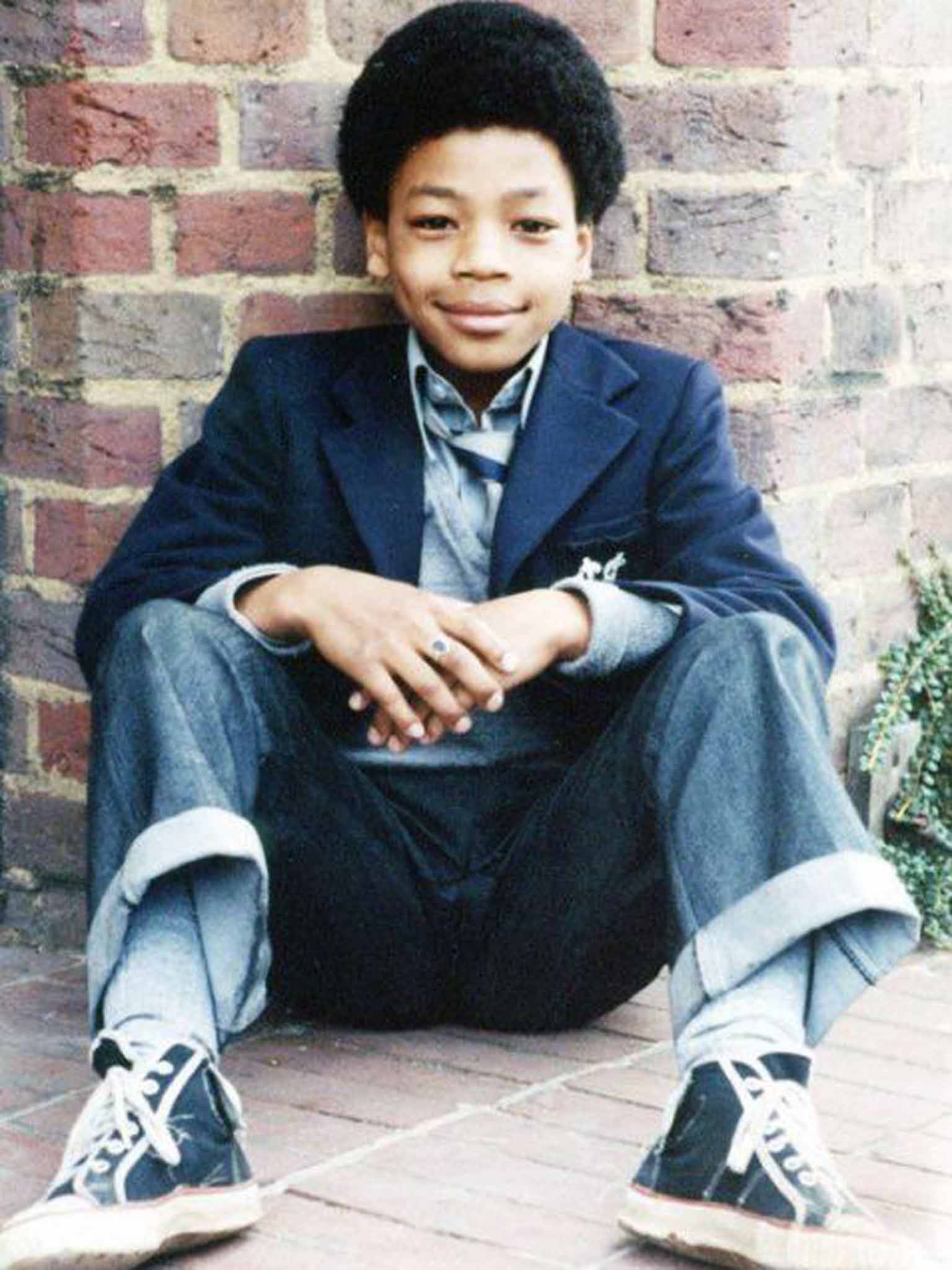Terry Sue-Patt: Actor who made his name as football-obsessed Benny Green in the children's drama series 'Grange Hill'
Amiable and sincere, he had trials for Queen's Park Rangers and Chelsea, and was also a talented artist

News of a life cut short at the age of 50 is even more poignant when the person who has died is forever fixed in the public imagination as a child. The death of the amiable and sincere Terry Sue-Patt, who, as football-loving Benny Green, was the first and also one of the most memorable pupils to walk through the gates of Grange Hill, has been met with both shock and sadness by a generation for whom another piece of their childhood has dissolved, and by his friends and co-stars. It's a testament to both the impact he made with the character, and the warmth that he himself engendered.
Grange Hill was the first contemporary drama series to be set in a school, and it was also unashamedly confrontational. Some astutely cast child and adult actors showed kids (and occasionally, teachers) behaving badly, getting political, and sometimes just getting through everyday life. Parents were predictably outraged, but Grange Hill was compelling because it was authentic, unpredictable, unsensational and endearing.
It began in 1978, the cast headed by Todd Carty's mischievous but principled Tucker Jenkins. Sidekick Benny was a diminutive, good-natured tyke with an impoverished family and a football obsession. Benny started school life without a uniform due to his parents' financial difficulties: in one adorable moment, when Tucker had persuaded him and middle-class Justin Bennett (Robert Craig Morgan) to explore a derelict building, Justin protested, "I've got my best shoes on", and Benny replied, "I've got me only shoes on."
During his four years on the programme, the character survived racist bullies and false accusations of theft, and was rewarded in his final episode by new boy Zammo boasting, "Look who I'm playing football with: Benny Green!"
Terry Sue-Patt was born in Islington in 1964, and attended Ecclesbourne Junior School (the school's drama club was the birthplace of the Anna Scher Theatre, which he continued to attend while at Sir William Collins Comprehensive). Scher launched scores of careers through classes that encouraged naturalism and focused on improvisation, partly because many of the children "weren't too hot on reading".
One of his first acting jobs was in the now-legendary Public Information Film The Spirit of Dark and Lonely Water (1973), with Donald Pleasance the voice of a Bergmanesque hooded figure representing the dangers of reckless play near rivers. He popped up in the promotional film for Bob Marley's "Punky Reggae Party" in 1977, and the same year had a leading role in a Children's Film Foundation number entitled Blind Man's Buff, a typical children-befriending-an-adult relic of that very different time, centring on a group of street smarts helping a blind man to find employment.
His love of football saw him play both for his school team and for Islington and Camden Schoolboys (alongside John Barnes); he also had trials for Queen's Park Rangers and Chelsea, but being a Spurs fan, turned down a trial at Arsenal. His casting for Grange Hill actually came through being spotted playing rather niftily in his local park by producer Colin Cant, who then bumped into him again that afternoon while scouting at drama clubs.
Sue-Patt was an instant hit with audiences and with his co-stars, but unlike many child actors, his career continued into adulthood. He was a good sport in Brick is Beautiful (1986), a BBC single play about a group of unemployed labourers, had a regular role in another scallywag saga, the well-remembered Big Deal (BBC 1985-86), which starred Ray Brooks as a compulsive gambler, and played a male nurse in the powerful Cardiac Arrest (1996), a character who happened to be gay at a time when this was still a talking point in television drama.
But his best post-Grange Hill role was in another BBC single play, The Firm (1988), which was the final work of the director Alan Clarke, now recognised as one of the most significant talents in British film-making. The piece nearly followed Clarke's 1977 Play for Today, Scum, on to the banned shelf, thanks to its unflinching depiction of a gang of football hooligans mobilised by suited-and-booted estate agent and family man Bexy (Gary Oldman). As the youngest member of his gang, Sue-Patt's character graduates from being ridiculed to razor-slashed; by the frightening, improvised finale, he has become one of the mouthiest of the gang's spokesmen, boasting to a TV crew about his dreams of taking their violence on a tour of Europe.
Clarke wrung an excellent performance out of him, but the opportunities afforded by his best on-screen role were sabotaged the following year when his brother, Michael, was killed in a car accident. Sue-Patt was in the passenger seat and survived, but blamed himself, and struggled for the rest of his life with depression and alcohol problems.
As well as football and acting, he was a talented artist, and in later years his work, influenced by graffiti artists such as Basquiat, was displayed at the E17 Art House gallery.
However it might look at a glance, his early death was not the clichéd consequence of child fame. It was a defeat by a tragedy that had thrown his life into irredeemable chaos.
Terry Sue-Patt, actor and artist: born Islington, London 29 September 1964; found dead Walthamstow, London 22 May 2015.
Subscribe to Independent Premium to bookmark this article
Want to bookmark your favourite articles and stories to read or reference later? Start your Independent Premium subscription today.

Join our commenting forum
Join thought-provoking conversations, follow other Independent readers and see their replies